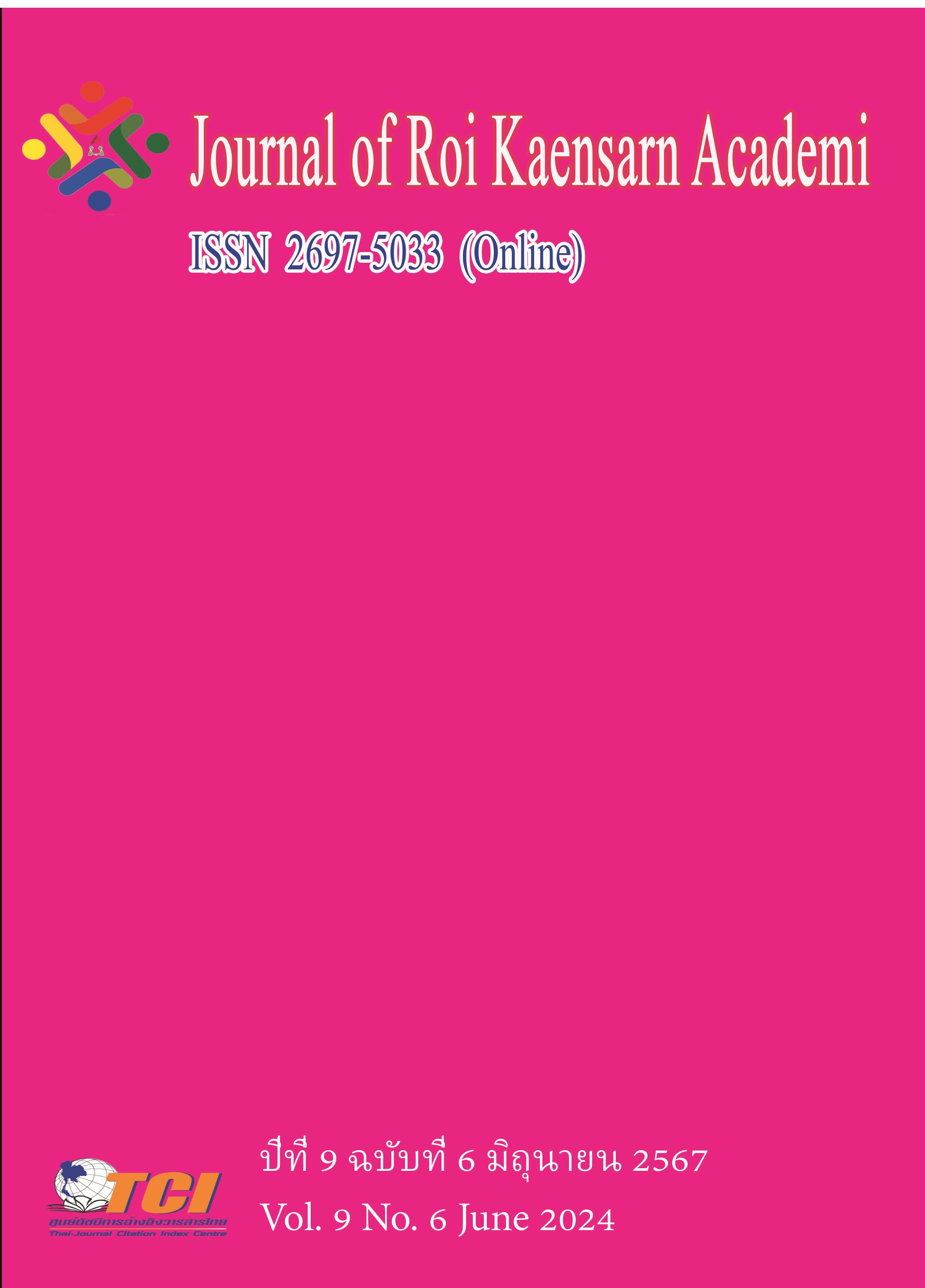การจัดการท่องเที่ยวโดยใช้ธรรมนูญชุมชน : กรณีศึกษาตำบลลานข่อย อำเภอป่าพะยอม จังหวัดพัทลุง
Main Article Content
บทคัดย่อ
การท่องเที่ยวถือเป็นกลไกสำคัญในการขับเคลื่อนเศรษฐกิจและมีบทบาทสำคัญในการพัฒนาเศรษฐกิจของประเทศ การจัดการท่องเที่ยวโดยชุมชนในพื้นที่จังหวัดพัทลุงได้รับผลกระทบจากการแพร่ระบาดของเชื้อไวรัส โควิด-19 จึงจำเป็นที่จะต้องมีการเพิ่มความแข็งแกร่งให้กับการท่องเที่ยวชุมชนให้สามารถฟื้นตัวได้อย่างมีประสิทธิภาพเพื่อที่จะก่อให้เกิดการสร้างงาน สร้างรายได้ให้กับคนในชุมชน
การวิจัยนี้มีวัตถุประสงค์เพื่อศึกษาการจัดการการท่องเที่ยวชุมชน วิเคราะห์รูปแบบการจัดการท่องเที่ยว และกำหนดเป็นธรรมนูญการท่องเที่ยวชุมชนพื้นที่ตำบลลานข่อย อำเภอป่าพะยอม จังหวัดพัทลุง โดยศึกษาจากข้อมูลเอกสาร กลุ่มตัวอย่างผู้ให้ข้อมูลจำนวน 59 คน และการจัดประชุมแบบมีส่วนในพื้นที่ จำนวน 5 ครั้ง ในการศึกษาครั้งนี้มีกฎหมายที่ใช้ในการวิเคราะห์เป็นสำคัญได้แก่ รัฐธรรมนูญแห่งราชอาณาจักรไทย พุทธศักราช 2560 พระราชบัญญัติการท่องเที่ยวแห่งประเทศไทย พ.ศ.2522 พระราชบัญญัติธุรกิจนำเที่ยว
และมัคคุเทศก์ พ.ศ.2551 และแก้ไขเพิ่มเติม พระราชบัญญัตินโยบายการท่องเที่ยวแห่งชาติ พ.ศ.2551 และที่แก้ไขเพิ่มเติม จากการศึกษาพบว่าการจัดการการท่องเที่ยวชุมชนเป็นการสร้างความสมดุลระหว่างทรัพยากรการท่องเที่ยว สังคม วัฒนธรรมและวิถีชีวิตและก่อให้เกิดการเรียนรู้ที่มีคุณค่า ในการจัดการท่องเที่ยวให้มีประสิทธิภาพที่ดีนั้นจำเป็นต้องมีการร่างเป็นธรรมนูญการท่องเที่ยวชุมชนซึ่งถือเป็นการกำหนดข้อตกลงหรือแนวทางพัฒนาการจัดการท่องเที่ยวชุมชนและปฏิบัติร่วมกันในการบริหารจัดการท่องเที่ยวของชุมชน จะต้องสร้างกลไกและกำหนดระบบบริหารจัดการท่องเที่ยวของชุมชนอย่างสมดุล ภายใต้การสนับสนุนจากภาครัฐ ซึ่งได้แก่องค์กรปกครองส่วนท้องถิ่น และการมีส่วนร่วมของชุมชน จัดระบบให้เกื้อกูลกันระหว่าง ด้านเศรษฐกิจ
ด้านสังคมและด้านทรัพยากรธรรมชาติและสิ่งแวดล้อมของชุมชน
Article Details
เอกสารอ้างอิง
กรมส่งเสริมการปกครองส่วนท้องถิ่น. (2550). มาตรฐานการส่งเสริมการท่องเที่ยว. สำนักมาตรฐานการบริหาร
งานองค์กรปกครองส่วนท้องถิ่น กรมส่งเสริมการปกครอง กระทรวงมหาดไทย.
ชุมชนท่องเที่ยว. (2557). สถาบันการท่องเที่ยวโดยชุมชน. ออนไลน์. สืบค้นเมื่อ 19 กุมภาพันธ์ 2564. แหล่งที่มา: http://www.cbti.org/?&start=0&page=1&ge=travel&categoryTravel=®ionT ravel=& provinceTravel=&keyword=&search=search
เทิดชาย ช่วยบำรุง. (2552). บทบาทขององค์กรปกครองส่วนท้องถิ่นกับการพัฒนาการท่องเที่ยวอย่างยั่งยืนบนฐานแนวคิดเศรษฐกิจพอเพียง. สำนักพิมพ์สถาบันพระปกเกล้า.
บุญเลิศ จิตตั้งวัฒนา. (2548). อุตสาหกรรมการท่องเที่ยวธุรกิจที่ไม่มีวันตายของประเทศไทย. ซี.พี.บุ๊ค สแตนดาร์ด.
ประภาส อินทนปสาธน์. (2546). การบริหารจัดการการท่องเที่ยวแบบชุมชนมีส่วนร่วม กรณีศึกษา หมู่บ้านโคกโก่ง อำเภอกุฉินารายณ์ จังหวัดกาฬสินธุ์. วิทยานิพนธ์ปริญญามหาบัณฑิต. บัณฑิตวิทยาลัย: มหาวิทยาลัยขอนแก่น.
ปรัชญา เวสารัชช์. (2548). การมีส่วนร่วมของประชาชนในกิจกรรมเพื่อพัฒนาชนบท. สถาบันไทยคดีศึกษา มหาวิทยาลัยธรรมศาสตร์.
พระราชบัญญัติการท่องเที่ยวแห่งประเทศไทย พ.ศ. 2522. (2522, 4 พฤษภาคม). ราชกิจจานุเบกษา (ฉบับพิเศษ). เล่ม 96 ตอนที่ 72. หน้า 1.
พระราชบัญญัติธุรกิจนำเที่ยวและมัคคุเทศก์ พ.ศ.2551. (2551, 5 กุมภาพันธ์). ราชกิจจานุเบกษา. เล่ม 125 ตอนที่ 28 ก. หน้า 20.
พระราชบัญญัติธุรกิจนำเที่ยวและมัคคุเทศก์ พ.ศ.2551. (2551, 6 กุมภาพันธ์). ราชกิจจานุเบกษา. เล่ม 125 ตอนที่ 29 ก. หน้า 1.
รัฐธรรมนูญแห่งราชอาณาจักรไทย พ.ศ. 2560. (2560, 6 เมษายน). ราชกิจจานุเบกษา. เล่ม 134 ตอนที่ 40 ก. หน้า 1-90.
ศิริชัย กุมารจันทร์. (2562). กฎหมายปกครองท้องถิ่น (พิมพ์ครั้งที่ 2). สำนักพิมพ์คณะนิติศาสตร์ มหาวิทยาลัยทักษิณ.
สถาบันวิจัยวิทยาศาสตร์และเทคโนโลยีแห่งประเทศไทย. (2542). การดำเนินการเพื่อกำหนดนโยบายการท่องเที่ยวเชิงนิเวศ. ศูนย์บริการวิชาการ สถาบันวิจัยวิทยาศาสตร์และเทคโนโลยีแห่งประเทศไทย.

